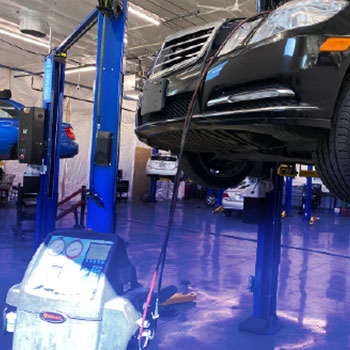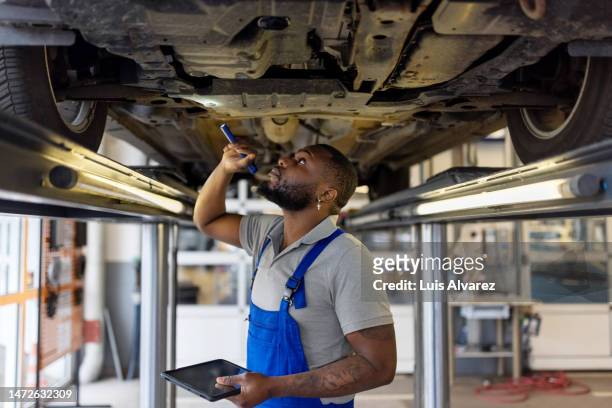All Categories
Featured
Engine repairs are often among one of the most expensive fixings you might come across as a vehicle proprietor. The expense of repairing or replacing parts of your engine can differ widely, and a number of variables contribute in establishing the final rate. Recognizing these elements can help you make notified decisions and possibly save money on repair prices. Here's a more detailed look at what influences the price of engine repair services.
For instance, a basic oil change or trigger plug substitute might just cost you a couple of hundred dollars, while an engine rebuild or substitute could cost a number of thousand dollars. The degree of the trouble and the parts that require to be changed are crucial aspects in computing the final expense.
![]()
Additionally, the quantity of labor needed depends upon the sort of engine problem. A fixing requiring full engine disassembly will take much more time than replacing a basic part, and this additional time is shown in the labor expense.
![]()
Furthermore, the make and design of your lorry can impact the cost of engine fixings. Luxury or foreign cars commonly require much more costly components that might be more difficult to find, increasing the general fixing expense. Typical domestic vehicles have a tendency to have quicker available parts and may be more affordable to repair.
Older cars may additionally have difficulty sourcing components, specifically if the car is ceased or unusual. In such cases, you may need to make use of reconditioned or made use of components, which can in some cases reduce prices yet may come with extra risks relating to quality and reliability.
On the other hand, lorries from even more common brands like Ford, Toyota, or Honda have a tendency to have lower repair expenses due to the fact that their components are much more commonly available, and numerous auto mechanics recognize with them. Repair shops usually have the required equipment for these vehicles, which helps in reducing labor time and expenses.
![]()
Verdict. Engine repair service prices can be considerable, yet understanding the variables that affect these expenses can aid you make far better choices when it comes time for repairs. The intensity of the damages, the type of components utilized, labor prices, the make and version of your automobile, and the diagnostic costs are all essential aspects that contribute to the total fixing cost.
- The Level of the Damages. The intensity of the engine problem is possibly the most substantial consider identifying the price of repair work. Small engine issues, such as worn-out ignition system, damaged belts, or a defective sensing unit, are usually less costly to deal with because they do not need disassembling the engine. On the other hand, much more major issues like a cracked cylinder head, blown gasket, or a harmed crankshaft can be really pricey because of the intricacy and extensive labor included.
For instance, a basic oil change or trigger plug substitute might just cost you a couple of hundred dollars, while an engine rebuild or substitute could cost a number of thousand dollars. The degree of the trouble and the parts that require to be changed are crucial aspects in computing the final expense.

- Labor Costs. Labor is one of the primary costs associated with engine repair. Labor expenses can vary depending on where you live, as fixing shops in urban locations usually charge a lot more per hour than those in rural areas.
Additionally, the quantity of labor needed depends upon the sort of engine problem. A fixing requiring full engine disassembly will take much more time than replacing a basic part, and this additional time is shown in the labor expense.
- Components and Materials. The price of replacement components can also vary significantly, specifically if you're using original tools manufacturer (OEM) parts or high-performance elements. OEM components are usually much more expensive than aftermarket parts, however they are often recommended to guarantee the longevity and proper feature of the engine. Aftermarket components are usually less pricey and can provide a more inexpensive alternative, yet they may not constantly meet the exact same high quality requirements as OEM parts.

Furthermore, the make and design of your lorry can impact the cost of engine fixings. Luxury or foreign cars commonly require much more costly components that might be more difficult to find, increasing the general fixing expense. Typical domestic vehicles have a tendency to have quicker available parts and may be more affordable to repair.
- Age and Mileage of the Lorry. The age of your automobile plays a substantial function in identifying the price of engine repair service. Older cars with high gas mileage tend to have more damage on the engine parts, which implies that repairs might be a lot more extensive and pricey. Gradually, engine components wear down and are much more likely to stop working, bring about even more constant repair work.
Older cars may additionally have difficulty sourcing components, specifically if the car is ceased or unusual. In such cases, you may need to make use of reconditioned or made use of components, which can in some cases reduce prices yet may come with extra risks relating to quality and reliability.
- Lorry Make and Design. The certain make and model of your automobile will greatly affect the expense of engine repairs. High-end brands like BMW, Mercedes-Benz, and Audi commonly have greater repair work costs because their components are extra pricey, and specialized knowledge is called for to function on them. Additionally, these brand names might call for specific tools or analysis equipment, which can add to the total price.
On the other hand, lorries from even more common brands like Ford, Toyota, or Honda have a tendency to have lower repair expenses due to the fact that their components are much more commonly available, and numerous auto mechanics recognize with them. Repair shops usually have the required equipment for these vehicles, which helps in reducing labor time and expenses.

- Diagnostic Costs. Before carrying out any kind of repair work, the technician will normally carry out an analysis test to figure out the origin reason of the problem. This test might involve scanning the automobile's onboard computer or performing numerous checks to assess engine performance. Diagnostic costs generally range from $50 to $150, depending upon the intricacy of the tests. Some service center might supply a discount or forgo this cost if you choose to wage the suggested repair services, while others might charge it independently.
- Location of the Repair Store. Where you take your automobile for repairs can likewise impact the cost. In contrast, repair service stores located in smaller communities or much less populated locations might use more affordable prices.
Verdict. Engine repair service prices can be considerable, yet understanding the variables that affect these expenses can aid you make far better choices when it comes time for repairs. The intensity of the damages, the type of components utilized, labor prices, the make and version of your automobile, and the diagnostic costs are all essential aspects that contribute to the total fixing cost.
Latest Posts
A-Abel Roofing: Reliable Roofing Services in Tinley Park
Published Jan 07, 25
1 min read
A-Abel Roofing: Superior Craftsmanship in Tinley Park Roofing
Published Jan 07, 25
1 min read
Indulge in Red Hawk Gastropub's Delectable Dishes
Published Jan 07, 25
1 min read